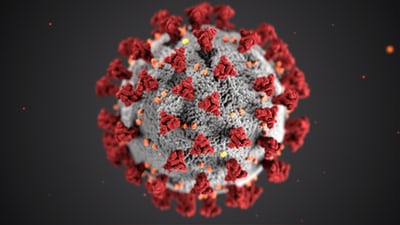
I’m sure everyone has heard a lot of perspectives already but I felt it would be helpful to compile a list of those that I have heard and found helpful. They are not in any particular order.
Rav Chaim Kanievsky
Rav Chaim Kanievsky wrote in a letter that there are two things to focus on right now:
1) Just like we know that the metzorah has to go into isolation for speaking lashon hora, so too we need to be makpid to not speak lashon hora and this will help us come out of our isolation.
2) Based on the Rosh at the end of Horiyos a person who lives with humility and overcomes their middos ra’os (especially yielding to others) is zoche to health and will not need a doctor at all.
Rav Yitzchak Berkovits
Rav Yitzchak Berkovits emphasized the following points:
1) We have all become so used to security and control over our lives. This challenge is forcing us to realize Hashem is really the One with the power and He is control of the world, not us. We need to strengthen ourselves in this foundation even if we can’t understand what or why this is happening. But we must realize that what Hashem does is coming from love and somehow the world will be better as a result of all of this.
2) The reason we are being so strict and following such broad sweeping guidelines isn’t because we are afraid of contracting the virus and thus living in panic. The reality is that the vast majority of people who get the virus will live through it. We are being so careful not out of panic but from a sense of responsibility to others, especially older people and those who are vulnerable so that they don’t contract it. Here in Israel they have taken the strictest measures only because it is such a small population they believe that they can contain it. In America, the measures are a little slower in rolling out and not quite as intense because they know they can’t contain it due to the size of the population but they hope to slow it down so the health care system can handle it in a more layered way.
3) Hashem is showing us that the entire world can be brought to its knees by some microscopic organism we can’t even see. We need to fathom the depth of Hashem’s true dominion over all of creation and be humbled by it.
Rav Asher Weiss
Rav Asher Weiss said in a schmooze:
We need to consider what is happening. We have been shaken because Hashem is trying to get our attention but we are so busy with our lives that we have no time for Him. Now we have been shaken from our busyness and we are home with our families being almost forced to talk to Hashem. He is saying, “I want the connection, I want you. Where have you been?”
The Zohar
The Zohar in Parshas Vayekheil Amud 218b (This is a brief summary but best to see inside):
The power of the Ketores is to subjugate the force of the klipos and the yetzer hora. Anyone who says Pitum Haketores everyday with kavanah will be saved from all bad things in the world. They will be saved from “pega rah,” from the yetzer hora and illicit thoughts, from “din kasheh,” from magefah (plagues), and will not have any damage that whole day. Rebbe Shimon said anyone who knew the gadlus of the Ketores would take each word of it and turn it into a gold crown upon his head. There is nothing more beloved to Hashem then the Ketores.
The Ishbitzer Rebbe
The Ishbitzer Rebbe on Ki Tisa about the Kior and the washing of the hands:
The whole idea of washing the hands is to separate from the mundane. We use the phrase “to wash our hands of something” to mean to detach from it and distance ourselves from it.
**At this time when we are focusing so much on washing our hands we need to consider letting go and detaching from some aspects of the mundane that are blocking us from our Avodas Hashem.
Rebbe Akiva Eiger
Rebbe Akiva Eiger cited in the Sefer Igrot Sofrim pp. 53-54, instituted seven takanos at the time of an outbreak of cholera:
1) He set up a communal vaad to inform the tzibbur about the issues of hygiene and to finance help for the poor and needy.
2) He was mevateil tefillah b’tzibbur during the days leading up to Rosh Hashanah which were extremely packed with people. In those times he hand-picked who could daven at the shul for Rosh Hashanah and who could be there for Yom Kippur.
3) He instituted that bigger minyanim should be broken up to smaller ones of not more than 15.
4) People who didn’t follow the rules could be reported to the authorities.
5) They said Tehillim after davening, Kel Racum Shmecha, Aneinu, and a y’ehi ratzon.
6) They shortened the davening and even allowed the police to enforce the flow of traffic in and out of shul as well as the size of the minyanim.
7) Everyone had to have a hot drink before coming to shul for Shacharis even though it was accepted at that time in Halacha that it was assur to do so.
________________
Rav Tzadok Cable is the Rav of Kehilas Ezra Hasofer RBSG



















